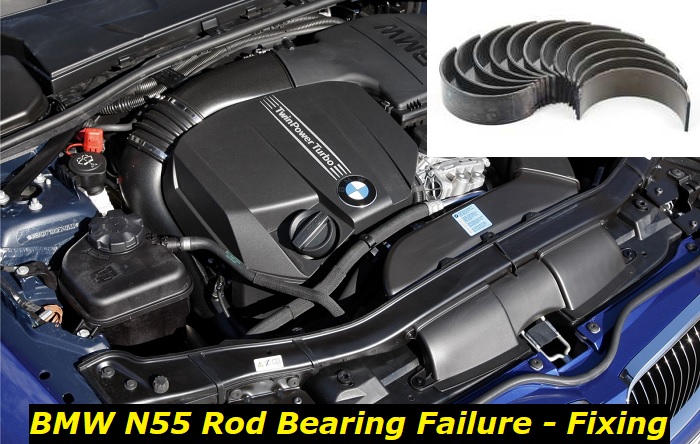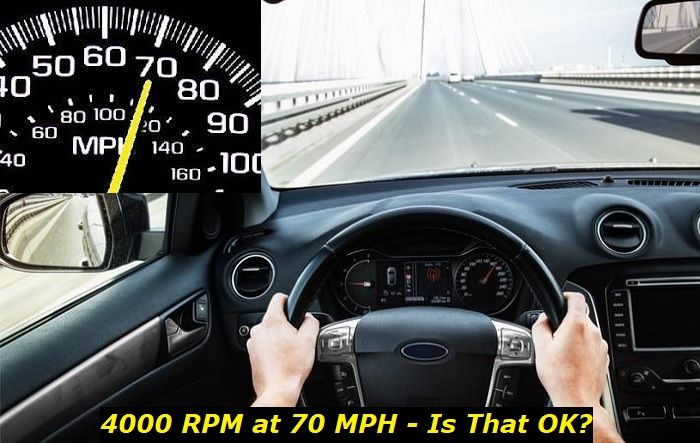It's no secret that BMWs are high-quality cars. They're known for their performance and durability. However, even the best cars can experience problems from time to time. One such problem is rod bearings failure. This issue can cause a great deal of damage to the engine and can be expensive to repair. You may end up spending as much as $12,000 to fix the problem.
Key facts and my opinion about the N55 engine
- Production years: 2009-2018
- Average lifespan of B48: 160,000-200,000 miles
- Fuel supply type: direct injection
- Power range: 306-370 hp
- Fuel efficiency: good
- Engine block material: aluminum
- Engine reliability score: medium
- The most common problems: Vanos and Valvetronic issues, direct injection problems, high-pressure fuel pump issues, crankcase ventilation system problems.

What are the symptoms of a bad rod bearing in a BMW N55 engine?
- Engine knocking
The most common symptom of a bad rod bearing is engine knocking. This is a loud, sharp noise that you'll hear coming from the engine bay. It's most noticeable when the N55 engine is idling, but it can also be heard when revving the N55 engine. If you hear this knocking noise, it's important to get your car checked out as soon as possible.
- Reduced engine power
Another symptom of a bad rod bearing is reduced engine power. If your car has this problem, you may notice that it struggles to accelerate or that the engine feels less powerful than usual. This can be a result of the damaged bearings causing friction and resistance within the engine.
- Drop in oil pressure
If you have a bad N55 rod bearing, you may also notice a drop in oil pressure. The oil pressure drop can be caused by oil leaking from the bearing. As the oil level gets low, the engine will start to run less smoothly. It can also drop because of air in the oil pump. You may also notice that your N55 engine is less powerful than it used to be. Your BMW may take longer to accelerate, and it may not be able to reach high speeds as easily. "Check Engine Oil" light can also appear.
You should always pay attention to the abovementioned symptoms and get your car checked out if you notice any of them.
What are the possible causes of rod bearing failure in a BMW N55 engine?
One of the most common causes of rod bearing failure is poor maintenance. If you don't keep up with regular oil changes, the oil can break down and stop lubricating the engine properly. This can cause the bearings to wear out prematurely.
You may also be using the wrong type of oil for your car. The BMW N55 engine requires a special synthetic oil. If you're using a cheaper, conventional oil, it may not be providing the necessary protection. Another possible cause is an issue with the manufacturing process. In some cases, the bearings may not have been properly heat-treated during production. This can make them more susceptible to failure. This is quite a rare cause; however, it can happen.
Furthermore, your driving habits can also contribute to rod-bearing failure. Frequently driving in stop-and-go traffic or on rough roads can put extra stress on the bearings. This can cause them to wear out more quickly. The oil supply system may not provide enough oil to the engine. The oil pump may not be efficient enough to supply the engine with oil because of hard driving.
If you drive too hard, your oil pump may suck up air, which will make your BMW N55 engine wear out faster. If you are looking to avoid this problem, it's best to drive on highways and back roads as much as possible.
One of the potential solutions is to change the N55 oil pump with an S55 oil pump, as it will ensure a constant supply of oil for your engine, even during hard driving. It is a relatively simple process, and it can be done by anyone with basic mechanical skills.
The S55 oil pump will prolong the life of your engine and avoid rod bearings failure. Also, while replacing the pump, you should inspect your engine rod bearings as well to see if they need to be replaced. The price of replacement is around $1600-$3000, depending on the shop.
Additionally, if you are driving hard and frequently reaching high speeds, you may also be putting more stress on the bearings, especially right after you've started the engine. It's best to let the engine warm up for a few minutes to reduce the risk of failure.
Try to avoid accelerating too quickly and driving at high speeds for extended periods of time. While BMW N55 is a powerful engine, it's important to drive responsibly to prevent damage. You are highly likely not a professional racer, and your car is not a race car.
Finally, some power mods can also contribute to this problem. If you've added a turbocharger or supercharger to your car, the increased pressure can put more stress on the bearings. The same is true for other mods that increase engine power, such as a cold air intake or performance exhaust.
When does this issue usually occur?
This problem usually occurs after around 50,000 miles. However, it can happen sooner if you don't keep up with regular maintenance or if you frequently drive your BMW in stop-and-go traffic or on rough roads.
Is it possible to fix a rod bearing problem on a BMW N55 engine without replacing the entire engine block or crankshaft assembly?
Unfortunately, once the rod bearings have failed, there's no way to repair them. The only way to fix the problem is to replace the entire engine block or crankshaft assembly. This is a very expensive repair, and it's not something that can be done at home. You'll need to take your car to a qualified BMW mechanic or dealership.
If you have a bad rod bearing, it's important to get your car checked out as soon as possible. If you wait too long, the damage can spread to other parts of the engine, resulting in an even more expensive repair. In some cases, it may even be necessary to replace the entire engine.
Some people even consider replacing engine bearings a preventative measure. By replacing the bearings before they fail, you can avoid the possibility of engine damage. This is something that you can discuss with your mechanic.
If you are driving really hard, check your rod bearings after 30K-40K miles. If rod bearings are still in good shape, then you don't need to do anything. But if they are starting to show signs of wear, then it's a good idea to replace them. The price for an N55 rod bearing replacement kit varies from $200 to $500, which is still much cheaper than replacing the entire engine block.
What should you do immediately to prevent further damage to the engine?
If you think that your BMW N55 engine has a bad rod bearing, the smartest decision is not to wait and take your car to a qualified BMW mechanic or dealership ASAP. The longer you wait, the more your N55 engine will suffer, which will end up costing you more money in repairs. Additionally, it's important to avoid driving hard to prevent any further potential damage.
Bottom Line
While there are only few documented cases related to N55 rod bearings problems, it doesn't mean you shouldn't be aware of this issue. If your engine starts to make strange noises, it is always a serious warning sign that shouldn't be ignored.
Even if it is not the rod bearings, other engine damage could be occurring. The best way to avoid serious and expensive repairs is to take your car to a qualified BMW mechanic or dealership as soon as possible at the first sign of trouble.
Additionally, preventive measures like regularly changing your oil (using the correct type) and smooth driving habits can help reduce the likelihood of rod bearings failure. If you can't live without hard driving, the best solution is to replace the M55 oil pump with an S55 oil pump to prolong the life of your engine.
About the authors
The CarAraC research team is composed of seasoned auto mechanics and automotive industry professionals, including individuals with advanced degrees and certifications in their field. Our team members boast prestigious credentials, reflecting their extensive knowledge and skills. These qualifications include: IMI: Institute of the Motor Industry, ASE-Certified Master Automobile Technicians; Coventry University, Graduate of MA in Automotive Journalism; Politecnico di Torino, Italy, MS Automotive Engineering; Ss. Cyril and Methodius University in Skopje, Mechanical University in Skopje; TOC Automotive College; DHA Suffa University, Department of Mechanical Engineering






Add comment